With Jussi Parikka, Pau Waelder, Aymeric Mansoux and Mónica Bello. Recorded (VO EN/ES) in Barcelona the 24th of February 2012 as part of the I+C+i Our Life Online session at CCCB.
(more…)
Posts Tagged ‘web 2.0’
Identity and Simulation. Artificial Life on the Networks
Wednesday, March 21st, 2012Tags: agents, alien, Barcelona, bots, cats, CCCB, communication, Facebook, Internet, panel, presentation, social networks, suicide machine, transparency, VIDA, video, web 2.0, youtube
Posted in contextual | 1 Comment »
Our Life online – Workshop+debate – 24 February 2012 at CCCB
Friday, February 17th, 2012The first session of I+C+i 2012 carries out a critical explanation of software policies, the notion of identity on the social networks and the impact of simulation caused by new artificial life applications. A workshop taught by Naked on Pluto, winners of the VIDA 13.2 prize and Gerald Kogler, and a discussion with the participation of experts such as Jussi Parikka, Pau Waelder, Aymeric Mansoux, and Mónica Bello, promise an intense day of action and reflection on lesser known aspects of our life on the web.
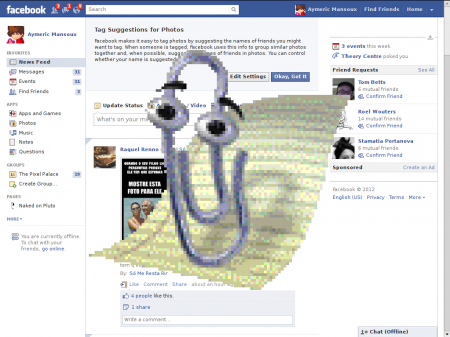
Session organised in collaboration with Fundación Telefónica.
Tags: agents, API, Barcelona, CCCB, data mining, debate, Facebook, free software, javascript, lecture, paperclip, social networks, VIDA, web 2.0, workshop
Posted in contextual, technical | No Comments »
Plutonian Striptease XII: Gordan Savicic
Wednesday, January 26th, 2011Plutonian Striptease is a series of interviews with experts, owners, users, fans and haters of social media, to map the different views on this topic, outside the existing discussions surrounding privacy.
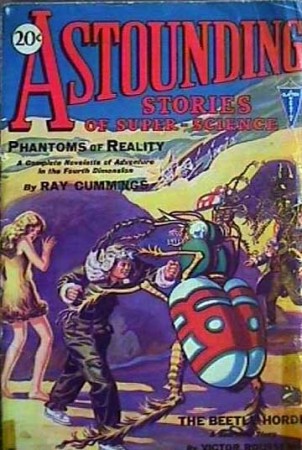
Gordan Savicic (AT/NL) is an artist playing with software algorithms, experimental media and fine art. His project “Suicide Machine 2.0”, where you can kill your virtual identity on social media sites, attracted lots of media attention. His work includes game art, interactive/passive installations and speculative hardware. His participation in collaborative projects and performances have been shown in several countries, such as Japan (dis-locate), Germany (Transmediale), Spain (Arco Madrid), France (IRCAM) and the Netherlands (V2_), among others. Savicic lives and works in Rotterdam and Vienna.
Social networks are often in the news, why do you think this is?
Part of their numerous news coverage is due to the reason that the old dream of silicon valley is again revived. Any little startup company could all of a sudden become the next big thing; romanticizing the emergence of accidental billionaires. The recent movie “The Social Network” is another example where “nerdy” startups are being portrayed through mass media channels as a part of a larger picture. (more…)
Tags: activism, EULA, Facebook, Flecks of identity, games, hype, participation, sharing, social networks, startups, targeted advertising, web 2.0
Posted in interview | No Comments »
Plutonian Striptease XI: Mez Breeze
Thursday, November 11th, 2010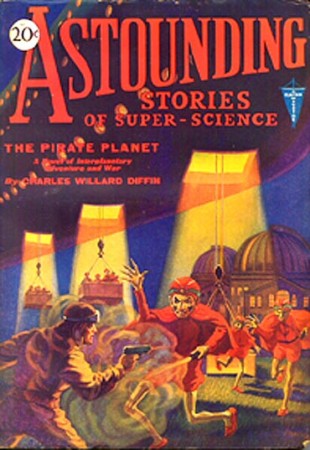
Plutonian Striptease is a series of interviews with experts, owners, users, fans and haters of social media, to map the different views on this topic, outside the existing discussions surrounding privacy.
Mez Breeze creates code poetry and is a Futurist. She explores environments that involve online socializations or encounters. Such encounters involves the modification of online gaming environments such as World of Warcraft, EVE Online, and Second Life. Some other online encounters involve social networking and alternate gaming software such as Facebook, Passively Multimedia Online Game (PMOG), and Twitter. The texts or jargon produced during these encounters are what drove Mez to create her type of net poetry. She has won several awards including the “JavaArtist of the Year 2001”, the Newcastle Digital Poetry Prize and an Honorary Mention in the read_me 1.2 Software Art Award.
Social networks are often in the news, why do you think this is?
straight away i find myself side-tilt>head-turn-questioning the phrase “in the news”: r u reffing the old skool>1-way monothreaded>tradition “broadcast” sense of “news”? if yes, then soc[ial]_net[work]s r often reffed>dissected there via a combination of novelty factoids [including the obligatory derogatory slant on any comm platform that threatens the longevity of the older>”traditional” news dissemination strains] + intrigue as 2 how they will impact the future of communication patterns generally. + let’s not 4get the [jump on the trundling-in2-the-relevancy-distance]bandwagon factor. (more…)
Tags: censorship, EULA, friendship, government influence, privacy, responsibility, scraping, social networks, transparency, web 2.0
Posted in contextual, interview | 1 Comment »
Plutonian Striptease X: Constant
Sunday, October 31st, 2010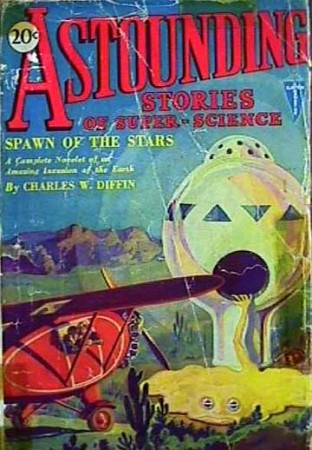
Plutonian Striptease is a series of interviews with experts, owners, users, fans and haters of social media, to map the different views on this topic, outside the existing discussions surrounding privacy.
Constant is a non-profit association, an interdisciplinary arts-lab based and active in Brussels since 1997. Constant works in-between media and art and is interested in the culture and ethics of the World Wide Web. The artistic practice of Constant is inspired by the way that technological infrastructures, data-exchange and software determine our daily life. Free software, copyright alternatives and (cyber)feminism are important threads running through the activities of Constant. Constant organizes workshops, print-parties, walks and ‘Verbindingen/Jonctions’-meetings on a regular basis for a public that’s into experiments, discussions and all kinds of exchanges.
Michel Cleempoel, graduated at the national superior art school of la Cambre – Brussels. Author of numerous digital art works and exhibitions, in collaboration with Nicolas Malevé. http://www.deshabillez-vous.be
Nicolas Malevé, a multimedia artist since 1998, has been an active member of the association Constant. As such, he has taken part in organizing various activities to do with alternatives to copyrights, such as Copy.cult & The Original Si(g)n, held in 2000. He has been developing multimedia projects and web applications for cultural organisations. His research work is currently focused on information structures, metadata and the semantic web and the means to visually represent them.
Social networks are often in the news, why do you think this is?
Essentially because of their scale. Facebook reports having more than 500 million active users.[1] This, of course, inspires all kinds of commercial dreams. Social networks barely brought something new to the web. For personal pages, Friendster predates largely Facebook and the other social networks. And the functionalities they offer barely innovate. It is their momentum though since a large portion of the online population happily subscribes and uses these services. In our view, social networks are an internet in miniature, what the bourgeois garden is to nature: a domestic version, with fences, controllable, reassuring, narrow-minded. They have their own version of email, chat, links, search, page but everything in redux. As they are powered by social pressure, they are an endless source of anecdotes fueling the media.
It is important to remark that we hear a lot about proprietary social networks and too rarely about free social networks in the mainstream media. They exist though and are used by governments, businesses or academic institutions: ie, elgg[2], a social network releasing its code under the GPL powers various important platforms like Oxfam, Federal Canadian Government, Johns Hopkins University or Université Lille 1. (more…)
Tags: advertisement, convergence, data mining, EULA, friendship, Internet, marketing, privacy, profiling, scale, script writing, social networks, social pressure, web 2.0
Posted in contextual, interview | 1 Comment »
Plutonian Striptease VIII: Owen Mundy
Wednesday, October 20th, 2010
Plutonian Striptease is a series of interviews with experts, owners, users, fans and haters of social media, to map the different views on this topic, outside the existing discussions surrounding privacy.
Owen Mundy is an artist and programmer who investigates public space and its relationship to data. He makes images, sculpture, and software that highlights inconspicuous trends and offers tools to make hackers out of everyday users. A former photographer in the US Navy, he co-founded Your Art Here, a non-profit organization in Bloomington, Indiana that puts art in public commercial spaces. In 2010 he created Give Me My Data, an application that helps users export their data out of Facebook. He is an Assistant Professor of Art at Florida State University and is currently based in Berlin funded by the DAAD.
Social networks are often in the news, why do you think this is?
Assuming “social networks” refers to the online software, application programming interfaces (APIs), and the data that constitutes sites like MySpace, Facebook, and Twitter, I feel its popular to discuss them in the news for many reasons.
Online applications that enable enhanced connectivity for individuals and other entities are relatively new and there is an apparent potential for wealth through their creation and the connections they enable. News organizations are businesses, so they naturally follow the money, “reporting” on topics which are considered worthwhile to advertisers who buy space in their pages, pop-ups, and commercial breaks. (more…)
Tags: advertisement, analytics tools, behavior control, data, EULA, law, manipulation, privacy, semantic web, social networks, surveillance, user-generated content, web 2.0
Posted in contextual, interview | 2 Comments »
Plutonian Striptease VII: Florian Cramer
Saturday, October 9th, 2010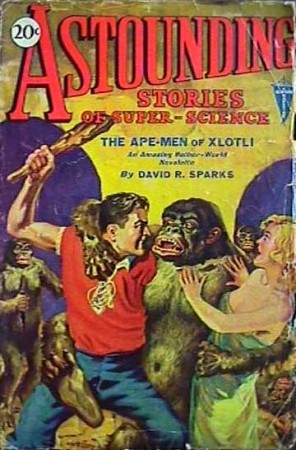
Plutonian Striptease is a series of interviews with experts, owners, users, fans and haters of social media, to map the different views on this topic, outside the existing discussions surrounding privacy.
Florian Cramer‘s background is comparative literature and art history with a focus on experimental arts, media, poetics and aesthetics. From 2006 to 2010, he was responsible for the Networked Media Master programme of the Piet Zwart Institute. Since 2008, he works as an applied research professor (Dutch: “lector”) supervising the research programme Communication in a Digital Age of the Piet Zwart Institute.
Social networks are often in the news, why do you think this is?
I see two major reasons: One, social networks have popularized classical Internet communication with accessible interfaces. So finally, everyone – including journalists – understands Internet as more than just an electronic distribution channel, and has also been cured from the “cyberspace”, “hypermedia” and “virtual reality” memes. But as a result, functionality and communication culture that has always been a core feature of the Internet is falsely being perceived as new, as a “social media revolution”.
The second reason is widespread job anxiety among the makers of the traditional news media, and those who indirectly live on the food chain of classical mass media production. Research suggests that younger people devote most of their media attention to social networks and “Web 2.0” services. At the same time, nobody except Google and, to a lesser degree, Facebook has figured out a revenue model for them. They help making traditional media marginal, but don’t create equivalent work opportunities for ‘creatives’ – designers, writers, etc. Contrary to the common belief that “social media” brought a shift from centralized one-to-many communication to a decentralized and self-organized model, just the opposite is true in regards to media ownership. A culture of countless local newspapers and TV stations, for example, is being replaced with a few global players in the Internet. The days where filmmakers could live from making MTV video clips, where critics could survive outside academia as newspaper and magazine writers and artists lived from jobs in the advertising industry are almost over. The strong news media coverage of social network mirrors the respective anxiety of the editors. (more…)
Tags: advertisement, communication, data leaks, data mining, EULA, illusion of intimacy, interface design, Internet, jobs, privacy, self-surveillance, social networks, web 2.0
Posted in contextual, interview | 4 Comments »
Plutonian Striptease VI: Marc Garrett
Sunday, October 3rd, 2010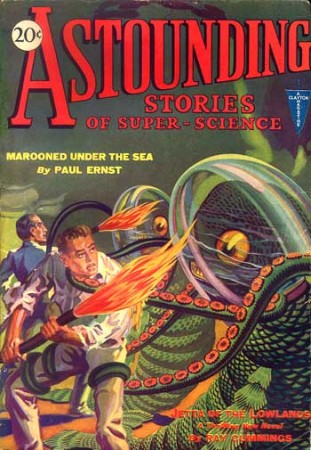
Plutonian Striptease is a series of interviews with experts, owners, users, fans and haters of social media, to map the different views on this topic, outside the existing discussions surrounding privacy.
Marc Garrett is Co-director and co-founder, with artist Ruth Catlow of the Internet arts collectives and communities – furtherfield.org, furthernoise.org, netbehaviour.org, also co-founder and co-curator/director of the gallery space HTTP Gallery in London, UK. Co-curating various contemporary Media Arts exhibitions, projects nationally and internationally.
Net artist, media artist, curator, writer, street artist, activist, educationalist and musician. Emerging in the late 80’s from the streets exploring creativity via agit-art tactics. Using unofficial, experimental platforms such as the streets, pirate radio such as the locally popular ‘Savage Yet Tender’ alternative broadcasting 1980’s group, net broadcasts, BBS systems, performance, intervention, events, pamphlets, warehouses and gallery spaces. In the early nineties, was co-sysop (systems operator) for a while with Heath Bunting on Cybercafe BBS, dedicated to arts, technology and hacking.
Social networks are often in the news, why do you think this is?
I find this quite a complex question. There are a few reasons why social networks are often reported more readily and regularly represented by traditional media news outlets. The main reason can be put down to social media’s popularity in everyday culture, connecting with people’s everyday habits and behaviours through different forms of networked, communication gadgets and tools. The massification of easy interaction, demanding hardly any thought in how to use the technologically, on-line networked and mobile interfaces, makes them perfect conduits for distributed information and communication. (more…)
Tags: data body, data mining, EULA, gadgets, net neutrality, patents, privacy, self censorship, social networks, web 2.0
Posted in contextual, interview | 3 Comments »
Plutonian Striptease V: Geert Lovink
Wednesday, September 29th, 2010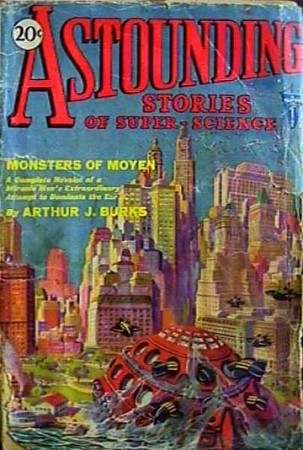
Plutonian Striptease is a series of interviews with experts, owners, users, fans and haters of social media, to map the different views on this topic, outside the existing discussions surrounding privacy.
Geert Lovink, founding director of the Institute of Network Cultures, is a Dutch-Australian media theorist and critic. He holds a PhD from the University of Melbourne and in 2003 was at the Centre for Critical and Cultural Studies, University of Queensland. In 2004 Lovink was appointed as Research Professor at the Hogeschool van Amsterdam and Associate Professor at University of Amsterdam. He is the founder of Internet projects such as nettime and fibreculture. His recent book titles are Dark Fiber (2002), Uncanny Networks (2002) and My First Recession (2003). In 2005-06 he was a fellow at the WissenschaftskollegBerlin Institute for Advanced Study where he finished his third volume on critical Internet culture, Zero Comments (2007).
Social networks are often in the news. Why do you think this is the case?
“Who cares about the internet!” is a phrase I heard kids saying the other day. If only we were there… Internet, the forgotten medium. It is indeed true that I have gotten used to the fact that the internet is overhyped and constantly in news over the past 15 years. Social media is just the latest craze, following terms such as Web 2.0 and the intense reporting around ‘blogging’. We should not forget that part of the urge to report is the fact that these social networking sites are in direct competition with ‘old media’ such as TV and print in terms of the ‘attention economy’ and related advertisement budgets. (more…)
Tags: advertisement, anonymity, attention economy, commodities, free services, friends, Internet, law, privacy, recommendation systems, trading, video, web 2.0
Posted in contextual, interview | 1 Comment »
Plutonian Striptease III: Geoff Cox
Wednesday, September 22nd, 2010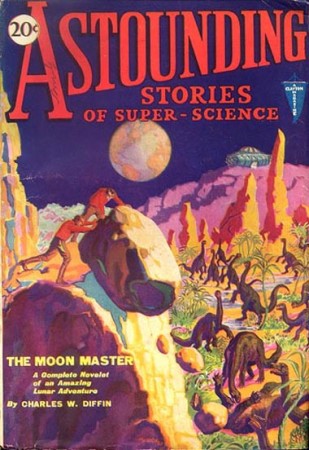
Plutonian Striptease is a series of interviews with with experts, owners, users, fans and haters of social media, to map the different views on this topic, outside the existing discussions surrounding privacy.
Geoff Cox is currently a Researcher in Digital Aesthetics as part of the Digital Urban Living Research Center, Aarhus University (DK). He is also an occasional artist, and Associate Curator of Online Projects, Arnolfini, Bristol (UK), adjunct faculty, Transart Institute, Berlin/New York (DE/US) and editor for the DATA Browser book series (published by Autonomedia).
Social networks are often in the news, why do you think this is?
Social networks, or more specifically the social web, are bound up with vested interests and the social imaginary. They have become key sites for entertainment, making business and even doing politics. Along with this, and as communications technologies become key sites for various forms of contestation, there are bound to be some juicy stories. In addition, social networks are becoming the apparatus of the news. On the one hand, there is the use of platforms for various kinds of social movements and alternative news gathering, and on the other, the old news apparatus is adapting itself to new kinds of distribution channels – rather like selling any other product. (more…)
Tags: communication, data, ethics, EULA, friends, Internet, marketing, ownership, privacy, property, rights, social networks, trading, venture capital, web 2.0
Posted in contextual, interview | 2 Comments »